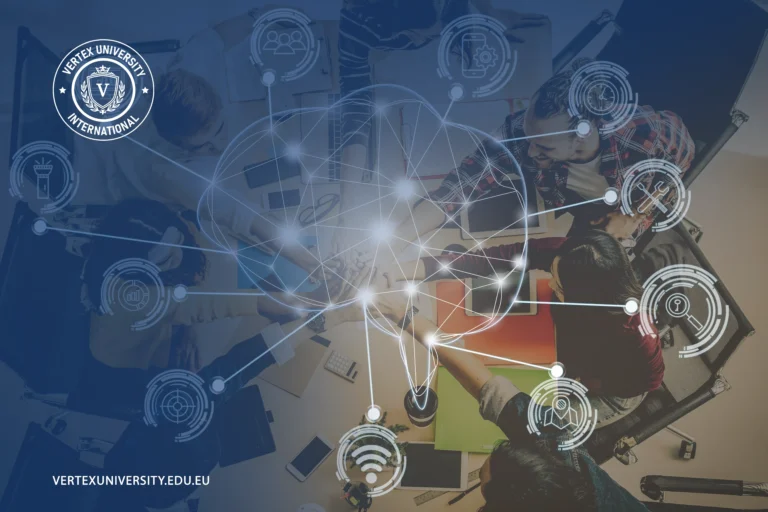In light of the rapid move toward digital transformation across all areas of life, it has become essential for individuals to adapt by developing a diverse set of skills.
These skills range from social and soft skills to technical ones, all playing a crucial role in ensuring success in the modern workplace.
To keep pace with change and thrive in the digital age, it’s important to recognize the most in-demand skills: social skills, soft skills, and technical skills.
First: Social Skills
Collaboration
Collaboration is a fundamental element for effective interaction in the workplace. Working in multidisciplinary teams requires the ability to engage positively with colleagues, facilitating the achievement of shared goals.
Effective collaboration includes fair task distribution, listening to others’ opinions, and offering support when needed. This approach fosters team spirit and a sense of belonging, which in turn boosts productivity.
In the digital transformation era, collaboration through digital tools—such as project management applications—is essential for organizing workflows efficiently.
Relationship Building
Relationship building is essential in the digital age, as it helps individuals create strong professional networks. Good relationships increase opportunities, whether through recommendations or new job prospects.
Building relationships requires empathy, respect, and trust. It’s also important to maintain these connections through regular communication and participation in professional and social events. Strong relationships contribute to a more supportive and inspiring work environment, promoting both personal and professional growth.
Effective Communication
Skills such as storytelling, public speaking, and active listening are essential in a world where digital communication is increasingly dominant. Effective communication demands clarity of thought and the ability to convey messages in a way that others can easily understand.
Active listening is also key, as it helps identify others’ needs and expectations.
In addition, using digital communication tools—such as virtual meetings and emails—is vital to ensure seamless information exchange. These skills help build stronger relationships and minimize misunderstandings.
Second: Soft Skills
Emotional Intelligence
Emotional intelligence enables individuals to understand and manage their emotions and those of others, making it easier to form strong and effective relationships. It involves empathy, recognizing others’ motivations, and controlling personal reactions.
Individuals with high emotional intelligence are better equipped to handle stress and workplace challenges, creating a more positive work environment. It also helps in making informed decisions by understanding the emotional influences involved.
Problem-Solving
Problem-solving skills are essential to navigate the challenges of a modern work environment. This includes accurately identifying issues, analyzing causes, and developing innovative solutions.
Effective problem-solving involves both critical and creative thinking, as well as data analysis skills to support decision-making. Employees who can solve problems quickly and efficiently are more valuable, as they adapt easily to ongoing changes. Learning from past mistakes is also a critical aspect of developing this skill.
Critical Thinking
Critical thinking enables individuals to analyze information and make informed decisions amidst an overwhelming amount of data. It requires the ability to assess evidence, identify assumptions, and distinguish between accurate and misleading information.
In an era of misinformation, this skill is vital to avoid being misled. People with strong critical thinking skills can present fact-based opinions, enhancing their influence in the workplace. It also supports the development of effective strategies for solving complex problems.
Third: Technical Skills
Graphic Design
Graphic design is essential for companies aiming to build a strong visual identity. It includes the ability to use tools like Adobe Photoshop and Illustrator to create compelling marketing materials.
Graphic design is a powerful tool for visual communication, helping convey messages in an impactful way. Good design requires an understanding of elements like color, layout, and typography, all of which shape the audience’s perception.
Content Creation and Writing
Content writing is a key factor in attracting audiences and building brand identity. It requires the ability to express ideas clearly and attractively, tailored to the needs of the target audience. Good content creation involves research skills, a distinctive writing style, and knowledge of SEO techniques to improve visibility in search engines.
It also includes generating a variety of content types—such as articles, blogs, and visual content—that help increase audience engagement.
Digital Marketing
Digital marketing involves running advertising campaigns on social media platforms and analyzing consumer behavior. This requires skills in campaign management, data analysis, and SEO strategies.
Professionals with digital marketing expertise understand how to target the right audience and craft effective messages. It also demands creativity and the ability to use modern technologies to increase brand awareness.
Programming
Programming is a core technical skill in the digital era, essential for developing applications and websites. Learning to code involves understanding languages such as Python, Java, and JavaScript, allowing individuals to create innovative digital solutions.
Programming enhances efficiency and productivity by automating processes and simplifying operations. Those skilled in coding can become integral members of software development teams, unlocking numerous career opportunities.
Data Analysis
Data analysis is crucial for understanding market trends and business directions. It involves using tools like Excel, Tableau, and Google Analytics to transform raw data into actionable insights.
Professionals with data analysis skills can offer valuable input that helps organizations make data-driven decisions. It is a vital capability for improving performance and shaping strategic initiatives.
Conclusion Developing social, soft, and technical skills is essential for thriving in today’s work environment. By focusing on these areas, individuals can enhance their chances of success and remain adaptable amid ongoing digital transformations.







